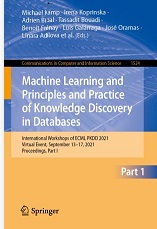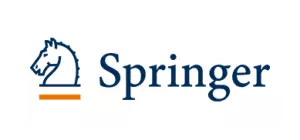
Welcome
Overview
Software engineering (SE) is about methodologies and techniques for building high quality software systems. However, modern software systems are becoming larger and more complex. Many of these systems are distributed and contain hundreds or even thousands of individual components that interact and communicate with each other through various interfaces. This not only complicates the process of software development, but also makes it more difficult and challenging to ensure their correctness and reliability.
On the other hand, recent advances and novel machine learning (ML) techniques deals with the development of methods that can automatically or semi-automatically infer models from data. Although, ML has already revolutionized numerous domains such as image recognition, translation and healthcare, it is not yet extensively used in SE. The increasing demand and interest in SE to improve quality, reliability, cost-effectiveness and the ability to solve complex problems has led researchers to explore the potential and applicability of ML in SE. For example, some emerging applications of ML for SE are source code generation from requirements, automatically proving the correctness of software specifications, providing intelligent assistance to developers, and automating the software development process with planning and resource management. Moreover, SE techniques and methodologies can be used to improve the ML process (SE for ML).
The interest in ML in SE is evident from the exponential growth in the number of articles published on ML for SE in recent years. This workshop aims at bringing together the SE, ML and data mining community to work toward novel ML for SE methods, their underlying assumptions and guarantees to allow researchers, practitioners and software engineers to identify and adopt the suitable ML methods to improve SE processes and software itself.
The workshop is open to research papers from academia and the industry. The workshop works on a model of call for papers, but also feature a small number of invited papers from top researchers in the field.
Aim and Scope
This workshop provides a place for researchers from two different fields to bring together both theoretical developments and applications of ML in SE. ML can provide new methods and insights to address various challenges in SE and vice versa. The main goal is to identify and share ideas on new research directions for how SE can benefit from ML that could ultimately generate profound impact on the SE society. Collaboration of people from ML and SE fields will offer new insights and results that can be applied in some of the research lines under the umbrella of the main ECML PKDD 2021 conference.
The topics of interest for Machine Learning in Software Engineering (MLiSE) include, but are not limited to following:
- Automated software design and development,
- ML-based tools in SE such as for software integrated development environment,
- ML in software project management, planning and scheduling,
- Software effort estimation and fault prediction with ML,
- Mining software repositories, particularly mining mobile application repositories,
- Intelligent investigation of software reliability, testing and security,
- Formal approaches in ML,
- Search-based SE,
- Application of ML in software testing,
- Nature-inspired and evolutionary algorithms in SE
- Application of ML in theorem proving and model checking,
- ML to predict software refactoring,
- Process mining and design pattern mining,
- Detection of duplicate code,
- ML for software vulnerability analysis,
- Discovering knowledge in source code and artifacts using pattern mining and other data mining techniques,
- New SE practices for ML model development
- Case studies and real-world applications of the above,
The workshop will be held on the 17th September, 2021 as part of the ECML PKDD 2021 conference.
Publication
Accepted workshop papers will be made available on the webiste, and be published as post-proceedings in a Springer proceedings book jointly with four other PKDD workshops.
A "best paper award" will be given to the best paper.
Contact
For any questions, please contact the organizing committee.


